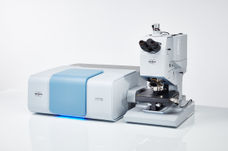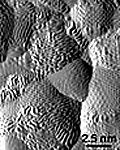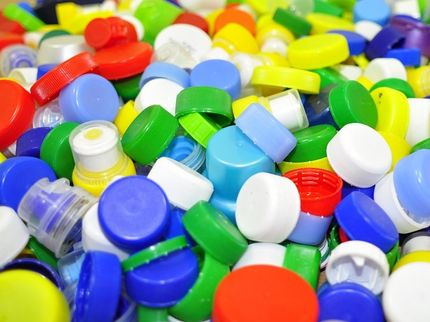120 in one sweep
Comprehensive concept optimizes the production of numerous specialty polyesters
With an integrated concept, Evonik can optimize the production processes for more than 120 specialty polyesters. The polyesters are produced by companies in a large number of plants with different designs. With the polyester process technology platform that was developed by experts in the Coating & Adhesive Resins Business Line it is now possible to optimize the entire production network in a sustainable manner.
Evonik Chairman Klaus Engel recognized this innovation last night when he presented the team of developers from the Resource Efficiency Segment with the company’s Innovation Award for new processes. “We do not innovate simply for the sake of innovation—our aim is to enhance quality of life and to create additional value for our customers,” Engel noted. Innovations, he went on to say, are a major driver of growth at Evonik, making them an important pillar of the company’s strategy. “We fuel our success with the creativity, the wealth of ideas, and the determination of our employees—after all, we want to become one of the most innovative companies in the world.” To achieve that aim, Evonik does more than just invest in products and technologies—its specialists develop tailor-made solutions for customers, experiment with new business models, and are always going about steadily improving existing products and processes.
“The particular challenge in the case of the polyester process technology platform is the high degree of complexity that is determined by the variety of products and also by the different designs of the plants,” explains Sabrina Mondrzyk, who coordinates the platform. In addition, most plants don’t manufacture one single product continuously but numerous specialty polyesters one after the other. “In these batch processes the reaction conditions are changed step by step and have to be adapted for the respective product,” adds Mondrzyk.
An interdisciplinary team with members from Process Technology, Production, the business line and the Research department systematically analyzed the global production landscape of polyesters and identified various factors for optimization. The expertise that was developed during this time will now be used as a basis to keep the processes throughout the world competitive and to support development of the market in the future.
For example, the findings are being used in the new plant for specialty copolyesters in Witten, which will commence operations in 2018 and will be characterized by its high levels of efficiency and product quality.
With the help of process modeling and simulation, innovative analytics, and investigation of thermodynamic and hydrodynamic effects, the team also developed a whole range of measures that can already be used to improve the way that existing plants are operated. The first improvements have already been implemented, such as minimizing the volume of secondary products and reducing raw material consumption. “By doing this, Evonik is making an important contribution towards environmental protection and reducing the consumption of natural resources,” emphasizes Dietmar Wewers, head of the business line.
Among other things, the company’s specialty polyesters are used as binders in the coating of large-scale metal bands and, increasingly, also for the interior coating of food cans. They are also used in reactive single-component and thermoplastic hot melt adhesives for technical joint applications.
Most read news
Other news from the department manufacturing
These products might interest you

Eclipse by Wyatt Technology
FFF-MALS system for separation and characterization of macromolecules and nanoparticles
The latest and most innovative FFF system designed for highest usability, robustness and data quality

HYPERION II by Bruker
FT-IR and IR laser imaging (QCL) microscope for research and development
Analyze macroscopic samples with microscopic resolution (5 µm) in seconds

Get the chemical industry in your inbox
By submitting this form you agree that LUMITOS AG will send you the newsletter(s) selected above by email. Your data will not be passed on to third parties. Your data will be stored and processed in accordance with our data protection regulations. LUMITOS may contact you by email for the purpose of advertising or market and opinion surveys. You can revoke your consent at any time without giving reasons to LUMITOS AG, Ernst-Augustin-Str. 2, 12489 Berlin, Germany or by e-mail at revoke@lumitos.com with effect for the future. In addition, each email contains a link to unsubscribe from the corresponding newsletter.
Most read news
More news from our other portals
Last viewed contents
New superconducting coil improves MRI performance - Research offers higher resolution, shorter scan time

Electrified Diamonds: Basel Physicists on the Trail of Quantum Information
Cortisporin
Karl_Friedrich_Mohr
Promega and Leica Microsystems Sign Agreement to Develop Fluorescent Ligands Enabling Live Cell Imaging at the Sub 100 nm Range

A candlelight-like glow from a flexible organic LED
Mustard_plant
First-ever videos show how heat moves through materials at the nanoscale and speed of sound




























































